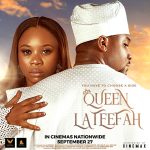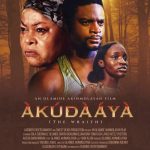Does the Media change as a result of the Dynamics Changing?
Taking a close look from physical to virtual,from home delivery to a click on the phone, from paper to online we can see that all these can be said to be the basics of the revolution that the media has passed through. The manner in which news is being made, spread, and delivered in the sequential order, can be indicated as a change many parts of the world, more particularlyin Nigeria and some other countries, which have not understood and yet to adapt to the change. Now we can also have a look at the traditional set-up of news reporters that are spread all over the country and sending in reports which after that they print them on paper and we can say that there are obsolete. Looking Closely, we can see that the print media is in the process of suffering from a younger generation known as Gen Z that is actively so updated with news that by the time the newspapers are being delivered at work or home, the news would have lost its value and currency.
Similar to how print media has given way to digital media. The top trends on Twitter have largely replaced the breaking news, instant news, or news alerts that the electronic media previously received from strategically positioned spies. Any topic that receives tens of thousands of hash tagged tweets or retweets is considered breaking news. As a result, digital media now lags behind electronic media rather than taking the lead. Print media and other forms of media just cannot compete with the scope and coverage of digital media. Imagine in 2020 that 27.9 billion hours of content would be viewed on digital media sites like YouTube, Vimeo, and Twitch. Even though Pakistani media organizations have turned to publishing their publications online, they are still finding it difficult to adapt to this media revolution. Many of them are still using the outdated methods of government assistance to manage their enterprises since they are unable to embrace this shift.
The primary dynamics that require adaptation are being listed below.
Although there are other options available to viewers, traditional media has only ever offered one. The radio plays, the TV broadcasts, and the newspaper publishes. No two-way communication is present. Younger viewers and audiences now want to communicate, share, and engage with news and entertainment providers. If their preferences are not honoured and their queries and feedback are not promptly addressed, they will lose interest. Therefore, the practice of submitting letters to the editor and having the newspaper publish them a week later is no longer appropriate. Because of this, the comment sections on all social media platforms, YouTube channels, and Twitter feeds are lengthy and never-ending. Nowadays, a typical teenager uses social media for close to five or six hours every day.This need for choice has recently been shown in Nigeria.
Generation Z, often known as “Zoomers,” seems to be more loud, conscious, and demanding. Simply put, they like to ask and share rather than be told.
While the government banned Twitterin Nigeria, people switched to VPN and still had access to Twitter. Then the usage of Facebook sprung up faster alongside YouTube. Facebookand YouTubelive streams are not controllable and cater to viewers’ demands better.
The audience craves interactivity. This is generation Z (Zoomers). This generation can be said to be more vocal, more aware and more demanding. Most times they just do not want to be told what to do rather they would prefer to ask and tell. They will comment, make statuses, criticizepostand appreciate at will. Their comments tend to become catchy and when a certain number retweets and repeats, they become hashtag trends. Sometimes these hashtag trends become so powerful that they become movements as seen in these examples the #blacklifesmatter hashtag during the corona times that became a movement, the #importedhakoomatnamanzoor” in Pakistan, the #EndSars hashtag and the latest #Obidients hashtag in Nigeria. Twitter recognized it as a record breaker as it was tweeted up to ten million times or more. This will set the tone for a very impactful youth movement that may make the Labour Party win Nigerian elections come 2023.
The public themselves can be said to be content creators- This generation born with smartphones are very smart. The advent of Tik Tok has helped in the creation of household producers, directors of videos. Every member of a particular house has the chance of making videos on almost everything. Though there are lots of banned and inappropriate stuffs, it has an advantage in the sense that it has liberated voice and talent right down to the least grass root level. Numerous anchor personalities have become their own YouTube content creators. Many start-ups and amateurs have already started their channels and then go around taking opinions from the public which then turns out to go viral. Since the monetization of YouTube, it has made millionaires of numerous popular anchors, some including thosewho were targeted by the government and were forced to leave the electronic media.
Tailored to individuality – Social Media advantage cannot be generalised as a general purpose that fits or matches all and sundry but an adapted and customized peace of offering. Facebook and other platforms utilise the data analytics capability that sends the type of news, products and sales offerings that a user wants. This has resulted in the product selling to be more accurate and hence advertising more effective. Video-making on Tik Tok according to background, social class, and humour among other types. Creation of messages participation has hence increased the stake and ownership of audiences and viewers.
It can be assumed that the post-fake world- which social media created lead to the opportunities that enabled space for fake news. The technology most times used for these fake postsare so good that the videos tagged fake post are almost as real. And this has resulted in character assassination and undue panic spread across in different parts of the world. This gave rise to the term “post-truth world. This term revealed that an almost equal number of fake news as genuine feed was been circulated on social media. But like all media, the continuous survival of a media is most times dependent on sieving truth from false. Even as most consumers become smart and technology becomes more accurate the post-fake world is also gathering momentum.
Previously anchors could come on spotlight on Television to debunk claims, or politicians could issue press conferences of about anything and there was no means of proper verification. Presently now before an interview comes to the end the false claims of any interviewer are already complied by consumers themselves and posted on all platforms otherwise known as fact checkers nowadays.
We can say that the media in Nigeria is still very much resistant to this revolution in its dynamics. They are still heavily dependent on government influence and as such there are few independent journalists which in turn as led to the lack of independent journalism in Nigeria. The government and the establishment also have not upgraded or come to terms with the speed of the changing information world. They are still either using stringent government laws or media institutionsas tactics to tame media. But it will be difficultto tame the monster of social media.
With TikTok it will be difficult to subdue the expertise of the emerging gingered youths. It will be difficult to conceal the truth behind false scripts. The institutions are yet to come to terms with this realization. The rules of propaganda have changed. Cyberspace has become a ground for most wars. The audience are now the producers of news. Money is now realised through monetizing of Instagram’s and YouTube channels. There has been a transformation of the audience, but the people and institutions have not.
Just like products, those that end up failing to change are being changed into rubbles. As they say, the ranking position of traditional media is the Managing Director, butthe ranking position of social media is the Managing Viewer.
Written by:
Ezisi-Abana JohnPaul (Forensics eDiscovery Consultant)
C.E.O Ezisi Media Consult









